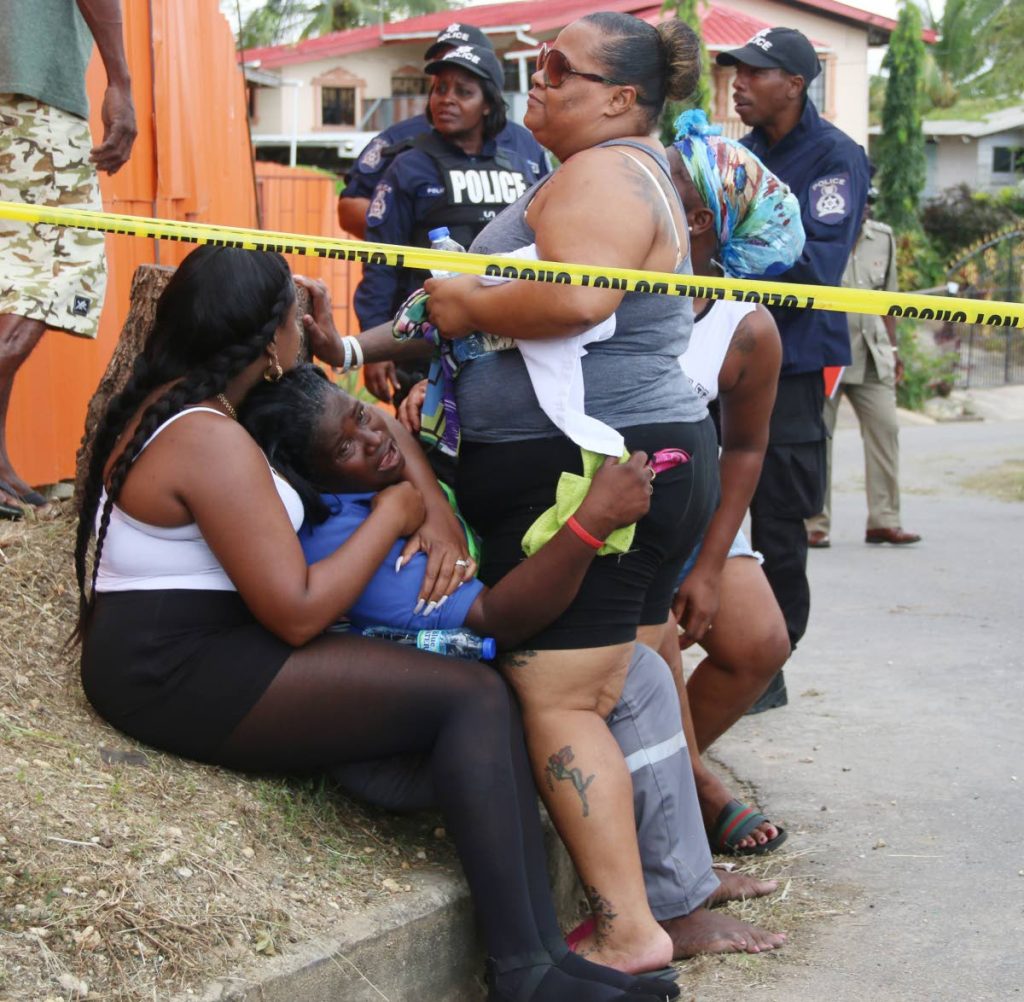Blood and etiquette

Colin Robinson
Both of my grandmothers have long since passed on, my mother too died in recent years, and even my dear wise friend Maureen jumped up to heaven on Carnival Friday night. So I am learning that I have no one to turn to any more for ready answers to this series of awkward questions I now find myself grappling with.
Questions about custom. Ones for which I need the reassurance of some cultural authority. Questions that I doubt any of the women ancestors in my family would have confronted in quite the same way as they present themselves to me. But, because they lived through times of far more rapid and unimaginable change and challenge than we are being called to, questions for which they might offer us powerful answers.
Some of these questions I have are concerns about social etiquette, with which I need guidance. But others are fundamentally practical tips, ones of the sort that Caribbean matriarchs are supposed to safeguard and dispense to others as cultural knowledge. For instance, what is the right combination of cleaners that you use to wash down a stranger’s blood after he has been gunned down on your doorstep? And what is it that you do with the broom afterwards?
Other answers to my questions are more straightforward. For example, if I had been one of the customers sitting in my barber shop at the moment when the two young men came in with their guns, asking for fete tickets, and had ordered all of us, including the two barbers, into the room in the rear. If I had been one of those five customers, I could easily have told Inspector Morgan, without any need to rely on grandmotherly counsel, that it was not good form to shoot through the door at those two young men.
But what might my barber’s grandmother have advised him about what he ought to do on the following day? What to say to his customers.
And what about me, the customer who happened not to be there on that day? What in the world were the words I was to say to my barber Curtis?
Some answers to other questions may appear straightforward, but are in fact much less so. Take for instance Max Antoine. How long precisely after he was gunned down outside the jewellery store on South Quay ought the workers who were painting the wall to have paused before getting back up on their scaffolding to continue the day’s job?
Take for instance, too, this surprisingly common situation. If you suspect that a murder that ends in a pool of blood on your doorstep is gang-related, ought you to light a candle to comfort the soul of the deceased?
Some Sundays ago, I shared my connection to Senator David Small’s experience, how I fall asleep as soon as my plane starts to taxi toward the Piarco runway, more soundly than I ever do in the bed in my house here. What I had not counted on, however, was waking up in a bed abroad, in a panic about the people and the house that I had left behind. And this was even before it happened. What might a living great aunt have been able to offer if I dialled 868 that could soothe me back to sleep?
But in the formless panic in my sleep the other night, I did not imagine the shape of a running young man who would collapse and die on my doorstep. And that I would find myself contemplating this very awkward question of etiquette: Who is to wash away the blood?
Clearly not those who shed it.
What are the simple moralities we are to show to each other over all of this blood?
What am I called to do when grieving strangers knock on my door to take responsibility for a dying stain? Do I say gently, no, not with your tears. I will rub out the last trace of him for you. What dare I say to the people who loved this dead man, who moaned wrapped around his blood-filled body, about all the dying on all the doorsteps, about the larger grief of all of us, about my fear of candles? People holding their small buckets and store-bought cleansers, holding up their heads, and holding in their sniffles. What are the rules?

Comments
"Blood and etiquette"